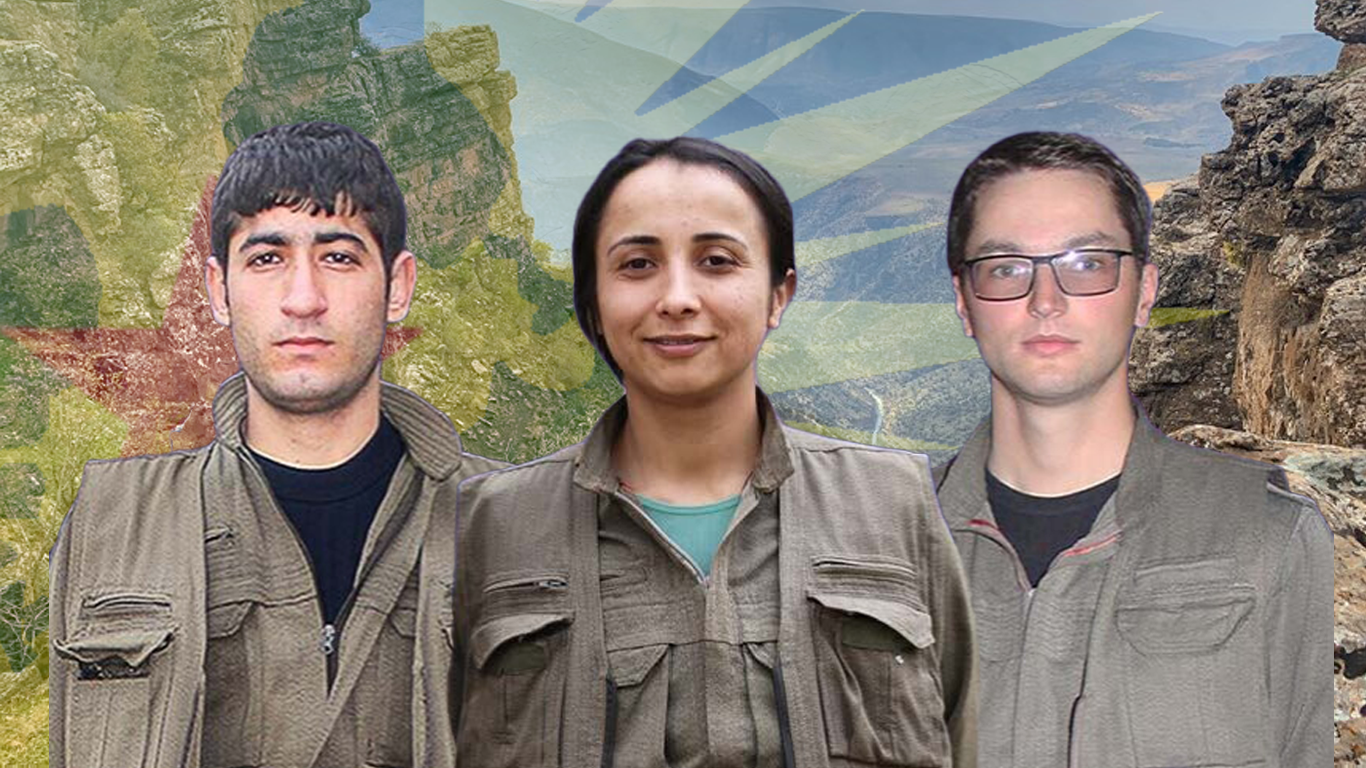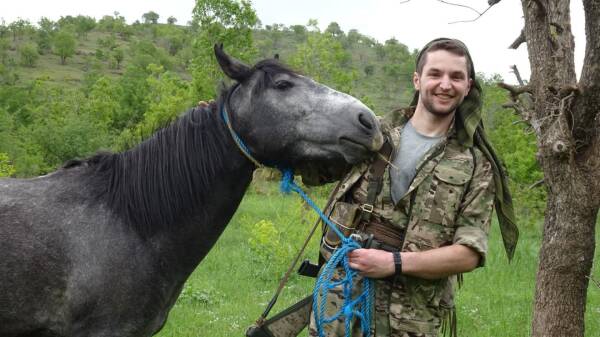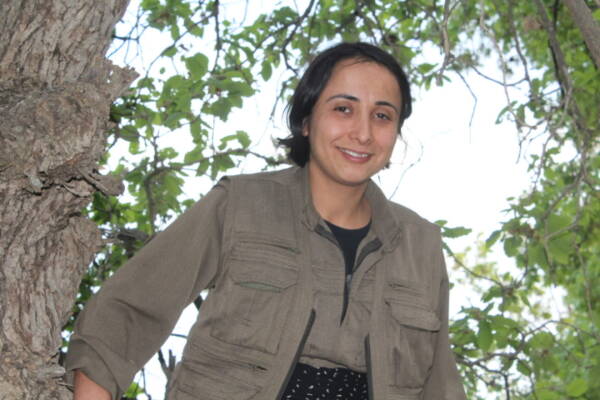
A few days ago we received the message that a German friend had fallen in the mountains. The identity of the friend who fought to the last breath during a guerrilla action against advancing Turkish troops in Xakurke (mountain massif in southern Kurdistan) was published: Azad Şerger, real name Thomas Joham Spries.
When we read the report by the Gerilla Command, we learned that two other friends had fallen by his side in the resistance against the Turkish occupiers: Asya Kanîrȩs from the Black Sea coast and Koçer Medya from Eastern Kurdistan.
In Xakurke, since the beginning of the large-scale invasion of Turkish troops last year in the regions of Metina, Zap and Avasin, the intensity of the war has increased. While the Turkish Army is repeatedly perpetrating war crimes and, in the face of a lack of success against a modern guerrilla, is even using chemical warfare agents, resistance in Xakurke is ongoing at a high level. Mobile units of the guerrillas strike again and again, inflicting heavy blows on the invading hordes of Turkish fascism.
On June 15th, 18 Turkish soldiers were killed in a coordinated action. The friends Asya, Azad & Koçer have contributed significantly to the success of this action and have fought selflessly and resolutely against the enemies of humanity.
The resistance of Azad and Asya is testimony to the internationalist spirit of this revolution, which is an inseparable part of the Apoist movement. You may ask yourself what is a German doing in the mountains of Kuridistan? What moves a daughter of the Turkish people to fight in the ranks of the Guerrila against the Turkish state?
Azad, like many of us, was part of the anti-fascist struggle in his homeland. And like many of us, he was engaged with different leftist ideas and movements until he got to know the Kurdish freedom movement during his studies when he started to read the defense writings of Rêber APO and the practice of the Apoist Movement he recognized a way to escape the dehumanization of Capitalist Modernity, to reclaim his humanity and to live a meaningful life. After being involved for a time in the youth organization of the Apoist Movement, he decided in 2016 to join the ranks of the Guerilla and become a militant of the revolution. Militant in the sense of a clear, uncompromising attitude towards the inhuman system of capitalist modernity and a life in the service of society, the Kurdish, the German and all societies on this planet. How much he could unify theory and practice, his thoughts, words and actions, he proved after a call he addressed to the youth in Europe about a year ago:
“This is a message from the free mountains of Kurdistan to all the youth who love freedom, consider themselves socialists and stand for freedom, peace and justice. The revolution is advancing in Kurdistan. Now is the time to make up our minds.”

He himself put his words into action. With selflessness and self-sacrifice Heval Azad defended the revolution until the last drop of his blood, which gave us all hope for a different world.
Heval Asya, birth name Kadriye Tetik, grew up in a village on the Black Sea coast in an environment influenced by socialist values. She came into contact with socialist ideas during her teacher studies at the University of Semsûr and later became acquainted with the PKK. Friends who knew her describe her as a curious and questioning personality who took responsibility everywhere; whether during the hazelnut harvest with her family or political work within the Turkish Left.
She quickly realized that the PKK was not only a Kurdish party, but a revolutionary movement for all of humanity. Kemal Pîr and Hakî Karer, both also from the Black Sea region, were crucial in shaping the internationalist character of the Apoist movement in its founding phase. Inspired by their lives and their resistance, she tore down the curtain of lies with which the Turkish state tries to separate the Turkish and Kurdish youth from each other and got to know the ideas of Rêber APO, visionary of the revolution in Rojava. In the massacre in Pirsûs (tr. Suruç) in 2015, perpetrated by the Turkish State and ISIS, she lost many friends who, like her, wanted to build a bridge of sisterhood between Turks and Kurds and demonstrated that day for Rojava. Her response to this loss shows great clarity and strength: she joined the revolution in Rojava. In the ranks of Rojava’s People’s Defense Forces, she fought tirelessly for 2 years:

“It is not enough to just fight. We have to fight the battle at the highest level” she said after that time and made her way to the mountains of Kurdistan to join the Guerilla.
In the Apoist movement, the story of “The 3 Butterflies and the Fire” is being told. It goes something like this: 3 butterflies see a bright light in the night. They want to understand what it is all about. The first one gathers his courage and flies closer. As it approaches, it notices how it gets warmer and warmer the closer it gets. It returns and reports: “It’s hot”. But this is not enough for the second butterfly. Also this one flies off, flying closer and closer, so close that it burns it’s wing. The butterfly returns and reports: “It hurts”. For the third, whose urge for truth is insatiable, this is still not enough. It flies closer than all the others, through the heat, through the pain until it is completely immersed in the flame of the fire. It has become one with the fire, has grasped the truth of the fire in all its facets.
This story, symbol of a relentless search for truth, also symbolizes the path, the life of the Şehids (“Martyrs of the Revolution”). They are the ones who, in search of the truth of a revolutionary personality, the essence of sacrifice and charity, have become an immortal part of the revolution. Immortal through our remembrance and through those who will take up the flag of resistance and hold it to the winds of these stormy times.
Azad and Asya – You have not only grasped the truth of the sacrificial struggle for freedom, you have become one with it. The path, the search for truth of Azad and Asya illuminates the way to an answer to the question of what internationalism means. They fought for the Kurdish people, for all the oppressed peoples of the world, for our planet. For us.
Şehid Namirin!
The martyrs are immortal!